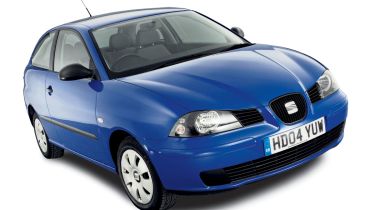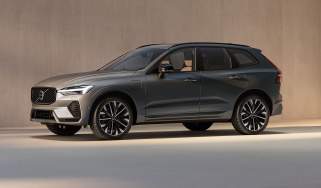SEAT Ibiza
It looks great and can be yours for a bargain – but what should you watch out for on the Spanish supermini...?
Make sure the SEAT Ibiza is on your shortlist if you are in the market for a second-hand supermini. It’s stylish and affordable, and shares its chassis and mechanicals with the Volkswagen Polo and Skoda Fabia.
You get a wide choice of powerplants, a huge variety of trim levels and the option of three or five-door bodyshells. The fun three-cylinder 1.2-litre petrol is very common, yet larger-capacity Ibizas are equally desirable. Our comprehensive guide helps take you through the maze of models.
History
The Ibiza dates back to the Eighties, but the current generation arrived in April 2002, with a choice of 1.2 and 1.4-litre petrol engines or a 1.9 TDI diesel. A year later, the 1.4 TDI joined the range, and within a month there was a 2.0 Sport, too. The hot FR (Formula Racing) was added in February 2004, with the option of 150bhp 1.8T petrol or 130bhp 1.9 TDI power.
In May of the same year, an even faster Cupra appeared in showrooms, with 178bhp 1.8T petrol or 158bhp 1.9 TDI engines. At the same time, the line-up was comprehensively revised, with the original S and SE renamed Reference and Stylance respectively. A facelifted car was launched in April 2006; it had improved standard equipment, yet cost less than before.
What to look for
If you’re considering an early, low-mileage car, get the cambelt changed straight away. Although replacement schedules are based on mileage rather than age, a five-year-old belt is bad news. If you do have a new one fitted, ensure the tensioner is renewed, too, because they can fail and throw the belt off. The torquey diesels offer excellent economy, but command a hefty premium, so don’t overlook cheaper petrol models, supply of which is much more plentiful.
Alternatives
The Honda Jazz has long been our class favourite. It was voted the best car in Driver Power 2004, and has consistently finished in the overall top 10 ever since. A firm ride and rarity on used forecourts count against it, but it’s still hard to beat. The Ibiza’s Skoda Fabia brother is another great car. It’s reliable and very cheap to run – attributes shared with the Toyota Yaris, Fiat Panda and Hyundai Getz.
Verdict
Good to drive, affordable and well equipped – the little SEAT remains an extremely attractive second-hand proposition. It may not be the biggest or even the most refined supermini currently available, but its great looks and competitive new car prices ensure there are plenty around.
Hot FR models provide serious pace, although it’s best to sample the ride comfort before you sign on the dotted line, because it’s seriously uncompromising. Reliability can also be patchy, so examine the service history thoroughly on any potential buy.
Extra Info
Recalls
Feb 2005: There is a problem with the bolts breaking on the Ibiza’s fuel pump cover. Many have been reported as faulty on examples built from March 2004 to the end of August 2004.
Driver Power 2007 verdict
The SEAT finished 87th out of 100 in our Driver Power 2007 owner satisfaction survey. Key complaints related to the car’s bone-shaking suspension – which is explained by the super-firm set-up of the popular FR and Cupra models.
Used - available now

2024 Seat
Ibiza
8,815 milesAutomaticPetrol1.0L
Cash £17,000
2018 Seat
Ibiza
62,864 milesManualPetrol1.0L
Cash £8,900
2018 Seat
Ibiza
59,579 milesManualPetrol1.0L
Cash £8,500
2021 Seat
Ibiza
28,655 milesManualPetrol1.0L
Cash £9,900Reader review
Ruth Harris from Bishops Stortford in Hertfordshire has owned her 2004 Ibiza 1.4 from new, racking up 22,000 miles in that time. “On balance, I’m a fan of the Ibiza,” she told us. “But it hasn’t been perfect.
“Squeaky trim has proved a nightmare to fix, and the electrics have been tricky, too – although the dealer has been utterly professional. It’s good to drive, and well equipped for the money, but the 1999 VW Polo I had before was a quieter and more reliable car.”
Running costs
All versions of the Ibiza need servicing every 10,000 miles or 12 months, and maintenance alternates between minor and major check-ups. A minor service for a petrol model will cost around £125, while diesel checks are likely to set you back slightly more, at £170. Equivalent prices for major attention are £160 and £200 respectively.
However, expect to pay more at the 40,000-mile mark (£220-£240 depending on the unit). While the 1.2-litre petrol engine is chain-driven, all other powerplants have cambelts. These have to be replaced at 80,000 miles on the FR diesel, at a cost of £289, at 40,000 miles on PD oil-burners (£280) and at 60,000 miles on all other cars (£212-£313).







